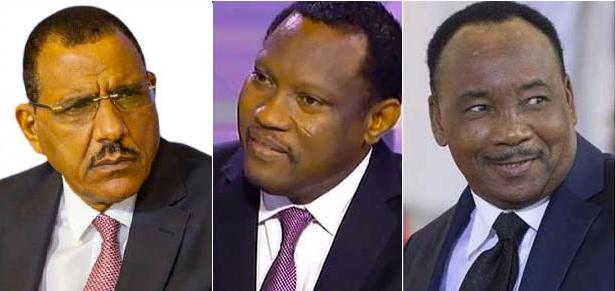Niger is being made ‘the gendarme of Europe’ in the migrant crisis
Published on 2016 May 16, Monday Back to articles
Niamey, the capital of Niger, the new ‘gendarme of Europe’ in the migration crisis
The beginning of May saw Niger receive its first major installment of the Valletta summit funds, to the tune of €74.9 million (US$85 million).
Niger has agreed to invest fully in the fight against what Europeans call ‘illegal migration,’ ‘smuggling of migrants,’ and ‘trafficking in human beings.’ This Joint EU–Niger Declaration was agreed at a high-level meeting in Niamey between Niger’s prime minister Brigi Rafini and, on the European side, the foreign ministers of France and German, namely Jean-Marc Ayrault and Frank-Walter Steinmeier, who arrived in Niamey from Bamako on 3 May.
The €74.9 million will cover five projects, but Niger wants a budget of more than €1 billion (US$1.1 billion) to combat illegal migration from its territory to Europe.
Routes across the Sahara
Migrants from West and sub-Saharan Africa take many routes across the Sahara in their struggle to reach Europe. With Frontex having tightened up dramatically in the western Mediterranean and the Algerian coast being well protected, the main route is now from Agadez to Libya, and from the Libyan coast to Lampedusa, Sicily, the Italian mainland, Malta, and Greece. Other routes – notably from Mali and Agadez to Tamanrasset in southern Algeria – involve migrants making their way to prospective crossing points from Morocco and Tunisia, but as with passage through Mauritania, the numbers undertaking this are now relatively small compared to those passing through Agadez primarily to Libya.
Nigerien Foreign Minister Ibrahim Yacouba said that more than 100,000 people transit through Niger each year. Official statistics compiled by the Nigerien and international authorities in April put the figure at 10,000–11,000 per week. Ayrault and Steinmeier remarked that they were shocked by the frantic pace.
The implications of the deal
The EU–Niger deal means that Niger will now take action to prevent migrants from heading north through the country, a policy that violates Economic Community of West African States (ECOWAS) provisions regarding the free movement of people and goods.
With the support of the Europeans and the expertise of IOM, Niger will be installing detention centres for migrants on its territory and could find itself soon becoming a vast detention camp. Even more serious is that Niger has agreed to sign a readmission agreement with European countries, as proposed at Valletta, to accept the deportation of not only its own nationals but also nationals of other countries who made it to Niger before crossing the Sahara desert and the Mediterranean to Europe.
This agreement is already coming in for severe criticism from the more independent local press, which calls it ‘a serious and fateful decision,’ and one that not even Mali was prepared to go along with. It shows, as some Nigerien editors have said, that the country’s ‘leaders are more than ever subject to foreign diktat.’ And how, asks the media, could they stoop so low as to work as police for a mere CFA50 billion (US$85 million)?
Managing the money – what will Niger do with the lion’s share of the expanding fund and development assistance?
Becoming more accountable – is Europe now ready to understand that its borders cannot be along the Mediterranean coast?



